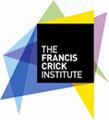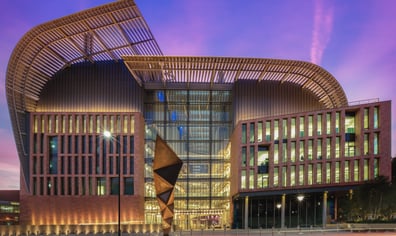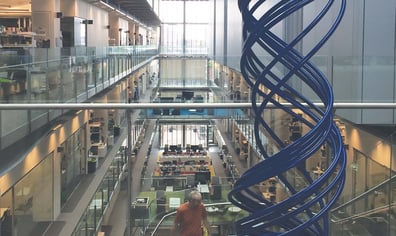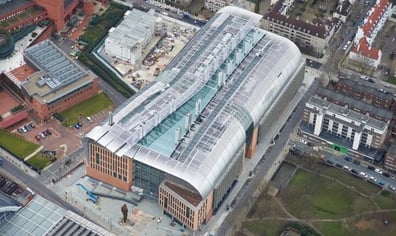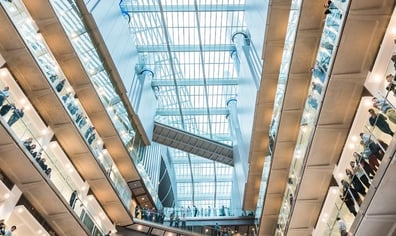About us
Who we are
The Crick’s mission is discovery without boundaries. We don’t limit the direction our research takes. We want to understand more about how living things work to help improve treatment, diagnosis and prevention of human disease, and generate economic opportunities for the UK.
In our institute more than 2,000 staff and students use their wide-ranging knowledge and expertise to work across disciplines and explore biology at all levels, from molecules through cells to entire organisms.
Our culture and values
The Crick is the outcome of a merger between the MRC's National Institute for Medical Research (NIMR) and CRUK's London Research Institute (LRI). The new institute was named after the UK scientist Francis Crick in recognition of his contributions to understanding the genetic code, the key to understanding how living things work.
We were established by our six founding partner organisations: the Medical Research Council (MRC), Cancer Research UK (CRUK), Wellcome, UCL (University College London), Imperial College London and King’s College London.
We began operating in our new, purpose-built institute in early 2017 and now have more than 100 research groups. Research groups from NIMR and LRI have been joined by groups seconded from each of our three partner universities, and we have recruited a significant number of newly recruited group leaders.
The institute is governed by a Board of Trustees, comprised of independent members and representatives from each of our founding partners. We are funded through core funding from the MRC, CRUK and Wellcome, as well as external research grants.
Equality, diversity and inclusion policy
On our website, watch our video to meet our Inclusion team and hear how we define equality, diversity and inclusion.
- Equality is about fair and equal access to jobs, training, resources, opportunities and it's about preventing discrimination and removing barriers proactively.
- Diversity means variety within a population. if you have a diverse workforce, you'll see representation of different genders, ethnicities, social backgrounds and more all through the organisation.
- Inclusion means that everyone feels welcome and is able to thrive in an organisation. Ultimately, diversity without inclusion doesn't work. An inclusive workplace welcomes people bringing their whole selves to work.

